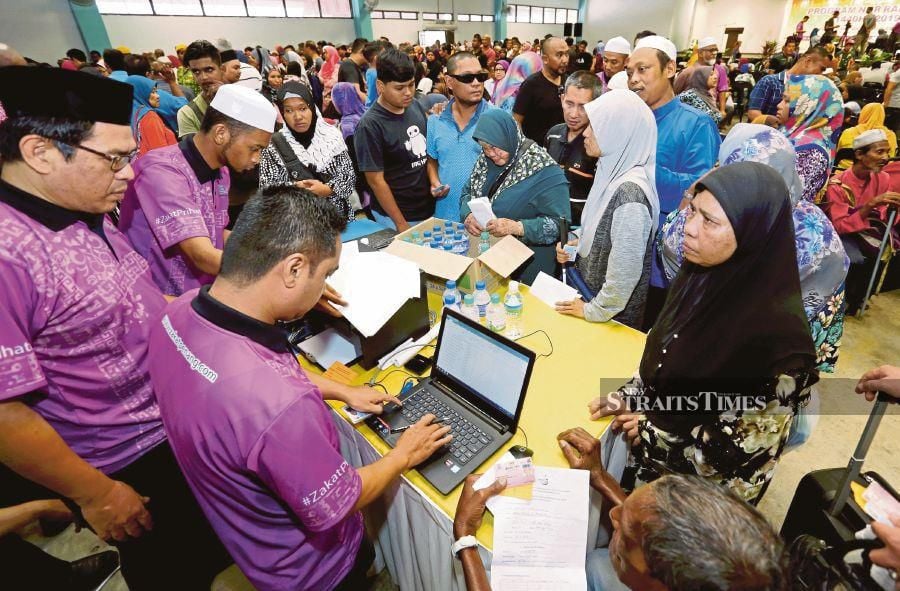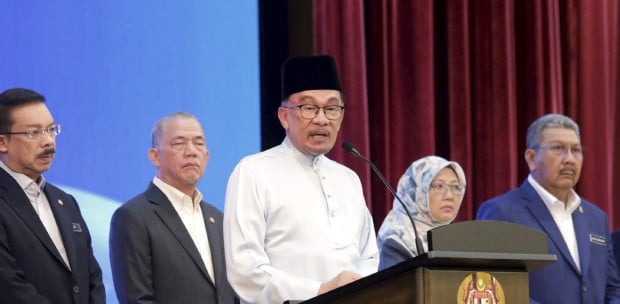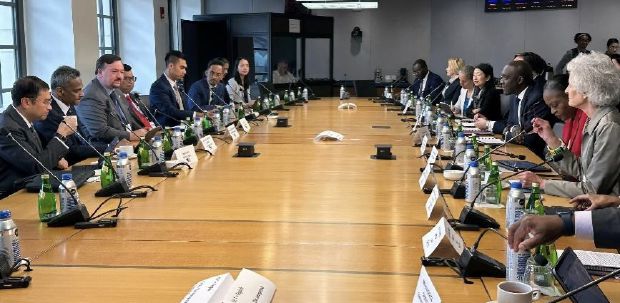Japanese prepare for and welcome Toshigami — the god of the coming year — every New Year’s Eve while Malaysians, like people in other countries, wave goodbye to the year.
The young and old, rich and poor, employed, self-employed and unemployed, are surely welcoming the dawn of 2020 with great anticipation.
However, taking from the words of Lu Xun, “I am not sure” whether everyone has the luxury of mental, physical and monetary wellness for this endeavour, especially those in the B40 group.
Poverty is a frightening beast. Japan fought it in the post-war reconstruction in the second half of the 1940s. Although our homeland did not have a similar experience, we still face difficulty in alleviating poverty.
It is not a new problem. The federal government had intervened to rectify this, but has yet to eliminate it entirely.
The government provides financial aid corresponding to several income brackets.
This is important but not sustainable because the financial burden is not likely to become lighter in the foreseeable future.
If each household on average receives RM100 per month, the monthly cost is RM113 million, and annually the sum is RM1.36 billion.
This amount is larger than the annual expenditure of several states. It is unavoidable to use fiscal resources to support this group.
This is not an easy decision because fiscal revenues also need to be channelled to other important areas. The competition for scarce resources is intense.
I recommend using national fiscal resources to help state governments assist the B40 in their districts.
This is effective because local administrators have a clearer understanding of the core problems of poor citizens. Furthermore, this method will become even more efficient and fair by introducing “conditional cash transfers” (CCT).
The World Bank defines CCT as “programmes to provide cash payments to poor households that meet certain behavioural requirements, generally related to children’s healthcare and education”.
Adapting this to support the B40 is not difficult. The key is to make sure the assistance is delivered effectively and impartially in the framework of decentralising the allocation of fiscal resources.
This approach forms the pillar of fiscal federalism, which is guaranteed by our Constitution.
The proposed CCT scheme can work in fiscal federalism in two layers. The first layer is to set aside funds to support CCT in a statutory agency, which is independent from the direct administration of the federal government.
The money can come from tax revenues under the administrative scope of the federal government (for instance, the Finance Ministry).
This might be controversial, but a political decision based on effectiveness and social justice is an acceptable rationale to a large majority of people.
There certainly will be a group of opponents, but this group is a minority. They will eventually give their support to the programme. However, people must not assume the aid will deliver the intended results because operational plans are generally formulated based on “known know-ledge”.
Inevitably, adjustments will have to be made in order to achieve good results. CCT will face a few obstacles. The most important is the source of funds.
In order to determine the contribution from tax revenues, legislators must determine the amount that is needed to implement CCT. For this purpose, it is necessary to strengthen fiscal equalisation of national and state fiscal resources.
This approach certainly brings about a socially just and effective method in narrowing the gap between the B40 and the other two high-income groups. If the plan is carried out, the reboot could change from “I am not sure” to “we are certain”.
The lives of the B40 folk will be better in 2020 and beyond.
These will then truly be days of shared prosperity in the country.
In hailing 2020, this column ends with a quote from Lu Xun: “You have to reform yourself before reforming society and the world.”
The writer is a professor at Reitaku University, Tokyo since 1983 teaching Southeast Asia studies, international economics and integration, development economics and Asian economy
The views expressed in this article are the author’s own and do not necessarily reflect those of the New Straits Times






